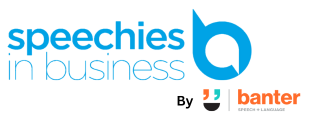Lawyers get paid to win arguments. To win arguments, they need to convince judges and juries. A key way they do this is by writing compelling legal briefs.
Bryan A. Garner is an expert in legal-writing. As the author of several books on legal writing, he knows a lot about winning arguments through clear, persuasive writing. Garner’s “The Winning Brief” contains 100 practical tips for writing persuasive arguments. Most of them apply to all kinds of persuasive writing, including sales, pitches and other presentations. Here are 21 of my favourites:
1. Be organised:
- Plan every project. Break it up into small sections; then write each section.
- First state the purpose of what you are doing and identify the main issues you will cover. Don’t write to discover your purpose.
- Organise the issues from most to least important.
- Write the first draft before you edit it. Let it sit awhile before you edit it.
2. Help the reader understand the big picture:
- Straight after outlining the purpose and main issues, sum up your argument and your theme in a brief statement.
- Weave specific facts into your issues to make them concrete and easy to understand. Don’t just talk about ideas and issues.
- Make your points as simply as possible, but no simpler.
3. Write good paragraphs:
- Begin each paragraph with a strong topic sentence – tell the reader exactly what the paragraph is about.
- Break up long, complex sentences. Aim for an average sentence length of 20 words or fewer.
- Bridge from one paragraph to another, but don’t overdo connectors like “further”, “moreover”, “in addition”. Instead, use pronouns (e.g. he, she, it), “pointing words” (like, this, that, these and those) and “echo links” (words that repeat an idea in summary language, e.g. “this rule” to refer to a rule your have just written about at length).
4. Edit for brisk, uncluttered sentences:
- Eliminate jargon.
- Avoid too much detail in the main body of your work. But don’t put arguments in footnotes.
- Put people in your sentences – use real names, not titles or labels.
- Search and destroy weak “be” verbs (is, am, are, be, were) and replace them with strong forceful verbs – preferably ones you can picture in your head.
- Write in the active voice wherever possible (e.g. “The man slammed the door”, rather than “The door was slammed by the man”).
- End your sentences with punch – preferably a strong noun or verb.
- Get red of “throat-clearing” filler phrases like (“In my opinion”, “May I respectively submit that”, “It should not be forgotten”, “It is important to remember that”).
5. Choose the best words:
- When you edit, don’t just cut words, but also replace boring words with snappy ones that spark interest.
- Use interesting nouns and verbs. Minimise adjectives and and verbs.
- Use one syllable words when possible. If no one-syllable word exists for what you want to say, aim for two-syllable words.
- Simplify wordy prepositions (e.g. replace “with respect to” with “to”, “in order to” with “to”).
Source: Garner, B.A. 1999. “The Winning Brief.” Oxford University Press, NY, NY.


Leave a Reply